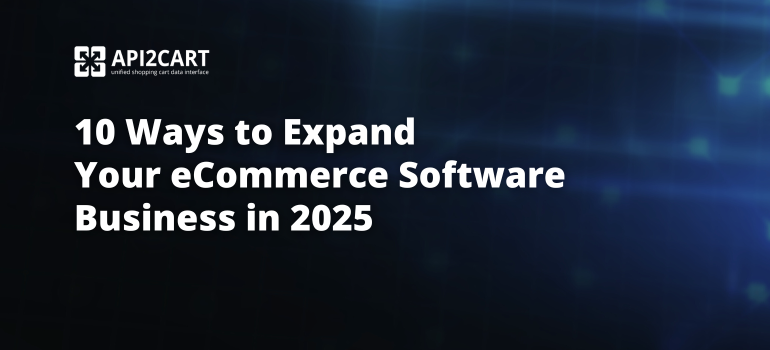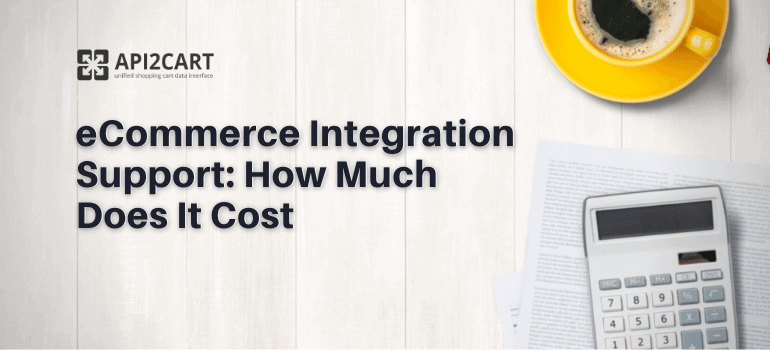
In today’s fast-paced digital market, it’s important to expand your eCommerce software business. For software owners, there are some unique and powerful opportunities to serve the eCommerce space by leveraging new trends, improving their solutions, and expanding the audience. There are many effective ways to grow and thrive, through integration with popular eCommerce platforms or innovative marketing strategies.
In this article, we’ll explore ten ways to expand your eCommerce software business. Each approach is built to enable software owners to unlock new growth opportunities by optimizing product offerings and building meaningful partnerships. Let’s discover actionable insights to help you take your business to the next level.
10 Ways to Expand Your eCommerce Software Business
The eCommerce software industry is constantly growing, offering huge opportunities for software owners to expand and grow their businesses. As demand for new and innovative solutions increases, software owners can take strategic initiatives to extend their reach and increase their success. There are 10 ways to expand your eCommerce software business, such as:
- Popular eCommerce Platforms and Marketplaces Integration
Integration with popular eCommerce platforms and marketplaces, such as Shopify, Magento, BigCommerce, WooCommerce, OpenCart, PrestaShop, and many others, are one of the strong tactics which software owners can consider for enhancing their position and importance in the eCommerce environment. These are platforms where thousands of merchants are available, therefore providing software owners with the opportunity to partner with their large customer base.
Through integrating with these eCommerce platforms software owners get the key eCommerce capabilities of inventory, order and customer management in your eCommerce software. This means that your software becomes an essential tool in the eCommerce space which will help them attract more merchants, enhance their experience and thus increase your market share.
- Using of Multi-Channel Functionalities and Functions
In today’s fast moving eCommerce world, customers interact with brands across multiple channels, including eCommerce platforms and marketplaces, social media platforms, online and physical stores. For software owners, it is crucial for their eCommerce solutions to have multi-channel functionalities and functions to address emerging requirements in business and consumption.
Businesses can interact with customers anytime from anywhere with multi-channel functionalities and functions. With the integration of multiple sales channels, software owners can enhance the value of their eCommerce software, systems and programs by providing merchants with more ways to connect with their audience. Multi-channel integration allows businesses to control everything, from inventory to orders and customer data in one central system. That simplifies across all touchpoints and minimizes manual errors.
- Implement Automation Features
Implementing automation features allows software owners to streamline operations and save time, reduce errors and increase overall business productivity. Automation eliminates manual intervention in time-consuming processes. It frees up those valuable resources and reduces human error, enabling businesses to concentrate on high value activities. Automation removes the possibility of errors present in the manual system.
- Customization and Scalability for Business Processes of eCommerce Software
Flexible and growth potential businesses are the key to long-term success of businesses. Implementing customization and scalability in eCommerce solutions helps software owners offer their eCommerce software and systems at a higher value by allowing businesses to tailor their operations to meet unique needs, and scale their solutions as they grow.
Every business is different and it also has different operational requirements. By offering the power to customize eCommerce software, it allows businesses to tailor their platform to suit how they work, who they work with, and what they sell. The software is more relevant and effective for each individual business because it is customized.
When businesses grow, their needs change, and software needs to follow. Scaling solutions allow you to extend your software to support increasing volumes of traffic, transactions and product listings. It is also easy to add new features, channels, and integrations on custom, robust, scalable and reliable eCommerce platforms as the business grows helping to future proof the software.
- Access and Growing to International Markets
Cross-border transactions in eCommerce have been on the rise. Expanding eCommerce solutions to international markets can be a way to conquer new markets and increase revenue potential, and reach a new diverse customer base. However, this expansion is a careful process and necessitates thinking through a number of different factors to succeed.
Expanding your eCommerce software into international markets can bring in increased revenue, one of the most compelling reasons to get out there. Reaching customers in different countries allows your software to help businesses grow their customer base, increase sales and diversify their income streams. Also, during different peak seasons, different markets offer opportunities for consistent revenue all year long.
The customer behavior, preferences, and trends vary from country to country and region to region. Expanding eCommerce software globally gives access to different customer segments. The broader user base, the less their business is affected by local economic downturns or industry shifts.
- Add Advanced Analytics
There are valuable insights into the performance and behavior of your customers that can significantly help businesses make better decisions and grow. Integrating advanced analytics and insights into the software is a powerful tool to understand trends, optimize strategies and improve user experiences.
Using advanced analytics embedded into eCommerce software enables businesses to make data-driven decisions. Whether it’s changing pricing strategies, optimizing product listings, or fine-tuning marketing campaigns, data-driven decisions enable software owners and businesses to increase efficiency, save resources and increase profitability. Analytics tools can tell you where bottlenecks are in the customer journey. One example of this is being able to track where users drop off or to see which products are being frequently left in carts. By identifying a customer’s friction points, businesses can work on those areas in order to increase conversion rates.
- Security and Compliance
Security and compliance are key issues for software owners that work in eCommerce. As more and more sensitive data is processed, from customer data to financial transactions, at least your software must meet the highest level of security and it must follow all relevant regulations. Software owners are trusted by eCommerce businesses with the personal and financial data of customers. Breach can damage a company’s reputation and cost the company financially due to penalties or loss of customers. They have many ways to protect sensitive data, including credit card numbers, addresses, and more personal information, by creating secure applications.
There are also regulations, such as the General Data Protection Regulation (GDPR), in Europe, the California Consumer Privacy Act (CCPA) in the US, and any country specific laws. They carry heavy fines if you are failing to comply with data protection and privacy regulations. It can prevent legal issues and cost a lot of money if you are not complying.
- Focus on User Experience (UX)
User experience (UX) is one of the most important factors that can either kill or save a business. UX design is paramount for software owners who own eCommerce software applications, systems, programs and digital products in order to please customers, boost conversion rates and repeat business. A good user experience can really help to make your software more usable which will make it more appealing to merchants and their customers.
Higher conversion rates can be achieved by having a good user experience. An online store becomes easier to navigate through, complete a purchase, and access accounts, the better the chances that the customer will complete the transaction. An interface that’s frustrating or confusing, however, can cause cart abandonment and lost sales.
- Ongoing Support and Updates
In order to stay relevant, functional, and efficient, software owners must ensure that their solutions do the same. Investing in ongoing support and updates is one of the biggest ways to achieve that. It is very important not only for keeping software’s performance, but also for keeping users happy with their experience due to technological evolution and demands of the market.
These updates fix any performance issues, add awesome features, and onboard new capabilities that make the app more user-friendly all the time. This guarantees the businesses and their customers have a pleasant and trustful experience, increasing customer retention and satisfaction. Being in the update loop more than often is important with regular updates, especially security patches, to protect user data, payment information, and have minimal chances of getting hacked. Keeping your eCommerce software secure means that you have done updates and keep your software, systems and programs in compliance with the latest security standard.
- Using third-party solutions
Products or services offered by other companies that can be integrated into software applications, systems, or software owners' programs are called third-party solutions. They can be used for a number of purposes, from making something more functional, to making it more secure, to making something easier to do, or providing some feature that would otherwise take a lot of time or effort to build from scratch.
The world of software development is now getting used to using third-party solutions. These solutions can be as an API, library, framework or service that helps software owners scale and optimize software applications, systems or programs faster and more efficiently. By using third-party tools, software owners can concentrate on their core business logic, shorten time in development, and add advanced features without having to reinvent the wheel.




Practical Tips for Scaling Your eCommerce Software Business via API2Cart
Using third-party solutions in software development can be a great time saver, can add functionality to your software, and it also provides access to expert services. However, software owners must consider its advantages and the disadvantages, namely security risks, costs and dependencies. With proper selection and management of the third-party tools, software owners can have more powerful, efficient and scalable software applications while keeping their focus on their core business objective.
API2Cart is a powerful and reliable third-party solution that helps software owners connect their software applications, systems and programs to 60+ eCommerce platforms and marketplaces, including Shopify, Magento, WooCommerce, BigCommerce, OpenCart, PrestaShop and others, at once. API2Cart also offers 100+ API methods to enable access to necessary data.
With API2Cart, software owners can manage integrations to multiple platforms through a single API. It saves development time, lowers maintenance costs, and frees up your time to work on improving your core product features. With API2Cart, you can synchronize product catalogs, orders and inventory data automatically. This makes communication between your software and connected eCommerce platforms easy.
API2Cart has robust and reliable official documentation and responsive technical support in order to facilitate your smooth integration and help with any problems. With API2Cart, software owners are able to simplify integrations, add new product offerings, and grow their businesses. API2cart is a very helpful tool for eCommerce growth and innovation with robust functionality and plethora of platform coverage.
It is possible to start using API2Cart absolutely for free. All you need to do is to book a free demo and contact one of our managers.
Conclusion
To grow your eCommerce software business, you need a strategic approach with the power of innovation, scalability and market understanding. Software owners can integrate with popular eCommerce platforms, adopt multi-channel functionality, offer customization and automation features for user-friendly to the customers and customized software. Additionally, if you are going to concentrate on security, user experience and advanced analytics, your eCommerce software, systems, programs and digital products will be noticed in an increasingly competitive market.
With growing reach to international markets, you must comply with local laws and suit the requirements of every region. Create long lasting relationships with your customers by scaling, embracing marketing integrations and providing them with ongoing support. Following these ten ways to expand your eCommerce software business will put your eCommerce software development on the path to sustainable growth, greater profitability and long-term success.
FAQs
Also, it enables you to integrate quickly without having to build separate integrations for each platform. This will save you time and resources, you can concentrate on other aspects of your business.



